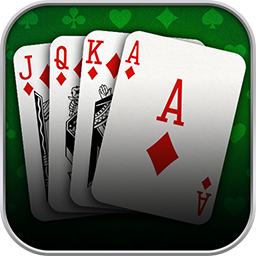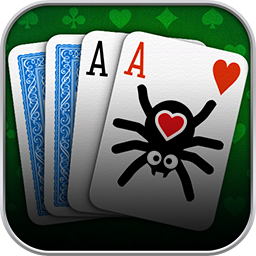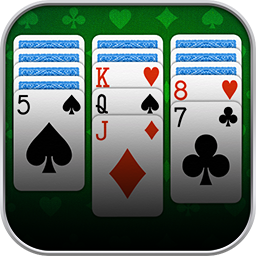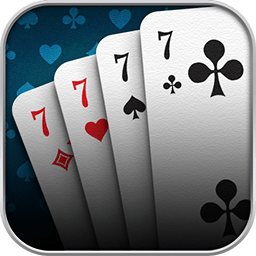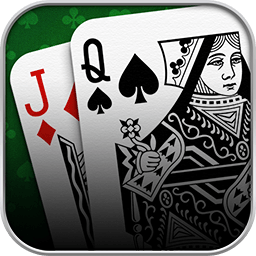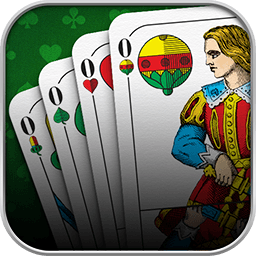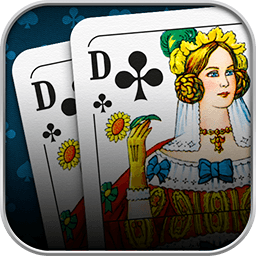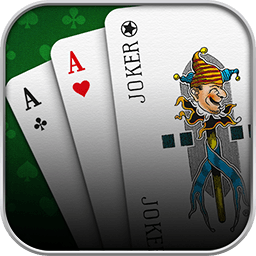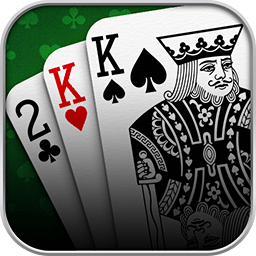Card Games: A Pastime for Centuries
Whereas playboards, tokens, and dice were present in Ancient Egypt and Mesopotamia, playing cards made of paper or cardboard are more recent. Their first accounts point to 12th century China and Japan. Via India, the Persian Empire, and the Arab world, playing cards eventually came to Europe.
Codes of law are the first evidence for their occurrence: In 1377, card games were officially banned in Florence!
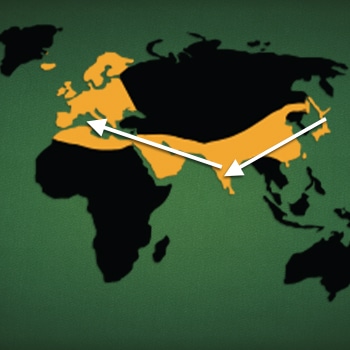
But neither authoritative bans nor condemnation by the Christian church had much effect. The constant improvement of printing technology gave ordinary people access to formerly expensive playing cards. That led to the eventual advance of this favorite pastime in Europe. It should not come as a surprise that tax authorities soon demanded their share: Already in 1583 in France, a tax on playing cards was established.
French Ancestors: Cinq Cents and Bezique
Kinship with other trick-taking games indicates that Pinochle was no absolute innovation:
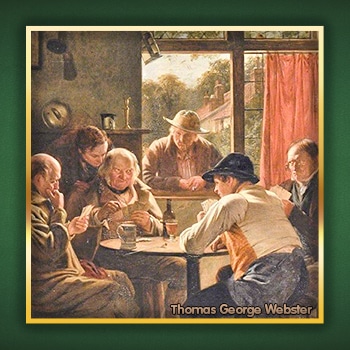
Just like all popular modern card games, it is derived from the rules and principles of older games, as eager players modified them over and over. We cannot pinpoint the exact time and place of modern Pinochle’s origin, as a rule book with a timestamp was, sadly, not provided.
Historical sources indicate the development of Pinochle in the Württemberg area. French card games, such as Cinq-Cents and Bezique, were likely the foundation.
Cinq Cents is also known as Single Bezique and is considered Bezique’s predecessor. Bezique is a two-player game with one deck. Around 1860 it was highly popular, especially in France and Great Britain. Later on, no less figure than Winston Churchill was an outspoken fan of the card game! Bezique’s rule set features melds, the trait that distinguishes Pinochle from other trick-taking games, such as Skat or Doppelkopf. Melds are particular combinations of cards that add further points to the score gained by trick-taking. Some examples are four Aces, four Kings, or four other cards of the same rank. Furthermore, there are marriages of a King and a Queen as well as the Bezique made up of the Queen of Spades and the Jack of Diamonds.
What does Pinochle Mean?
Pinochle probably originated in German-speaking regions. Thus, the term Pinochle is likely an adaptation of the game’s German name. So let us look into that: In Germany, Pinochle is known as Binokel, in some places, even Binocle. In Swabian, a southern German dialect, it is called Benogl or Benoggel, as well.
The origin of these names is speculative. But it sounds plausible that the name is a modification of the Italian phrase bin oculi, meaning two eyes. The number two would refer to the two decks of cards used in Pinochle, where each rank comes up twice per suit.
Another potential derivation is the French term binocle, referring to glasses with two lenses – as opposed to the monocle – in the 19th century. Again, a nod to the double card deck in Pinochle could be assumed.
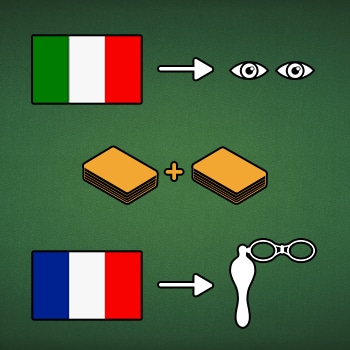
Relatives From the North Sea to the Mediterranean
Bezique inspired Pinochle and numerous similar trick-taking games, rewarding specific combinations of cards with additional points.
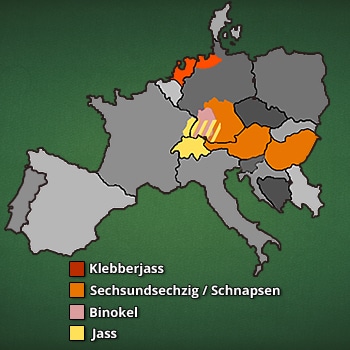
Just to name a few, there are Sechsundsechzig (German for sixty-six) and Schnapsen, both of which predominantly occur in Bavaria and the region of historical Austria-Hungary. Another example is Jass, Switzerland’s national game. Beyond Switzerland, it is well known in the Alemannic German-speaking regions of Europe – from Alsace via southwestern Germany (Baden Württemberg) and Liechtenstein to western Austria (Vorarlberg) and northeastern Italy (South Tyrol).
However, the Netherlands, as well as Altes Land – a marshland area between lower Saxony and Hamburg – know the variation Klaberjass.
US American Kinfolk
At the Pinochle Palace, you initially get to play Pinochle as it is known in Germany. How come German Binokel is different from American Pinochle? With emigrants and travelers leaving Europe westward, Binokel most likely emigrated to the United States as well, turning into modern Pinochle over time:
Popular with Jewish and Irish immigrants, it was soon established as Pinochle, Penuchle, or Pinocle. It is a game for two to four players, two decks of cards and rules slightly different from German Pinochle.
But the established basic principles of bidding, melding, and trick-taking are clearly recognizable in American Pinochle, too. At the Pinochle Palace, you can use our custom rules to set up a table the American way!
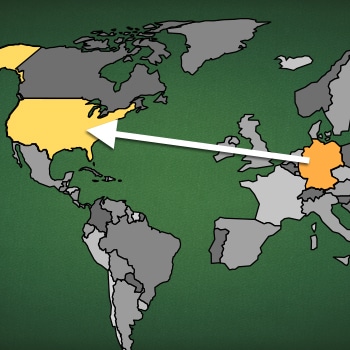
Double Deck
German Binokel usually employs 40 cards of the Württemberg pattern, which is a regionally distinct version of the German pattern. Five different ranks are presented twice in the four traditional suits: Ace, Ten, King, Ober, and Unter each come in Acorns, Green, Hearts, and Bells. Colloquially, especially in southern Germany, the pattern is referred to as the Pinochle pattern or Gaigel Pattern.
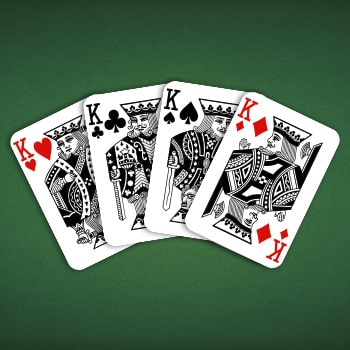
In contrast, American Pinochle traditionally comes with cards in six ranks in four French suits adapted in the American pattern. That means 48 cards are in the game. The ranks are Ace, Ten, King, Queen, Jack, and Nine or Seven in the suits Clubs, Spades, Hearts, and Diamonds.
This beautiful pattern is then used for trick-taking. If you enjoy that type of card game, you might be interested in our further options in the genre.
Once you get behind the fundamental principles, you will find it easy to adapt to plenty of trick-taking variants and get to enjoy a wide variety of games. At the Palace of cards, you can have a look into Skat, Doppelkopf, and Sheepshead, which all come with English game settings, of course.
Do You Feel Like Playing?
Pinochle remains popular – not just with long-established play groups, but also with many young people. That is not owed least to online platforms where pinochle groups can get together anytime!
That is extra easy at the Pinochle Palace: Regardless, if you are using a browser or our app, you will always find someone to play Pinochle with. So, do not hesitate and get the kitty!

